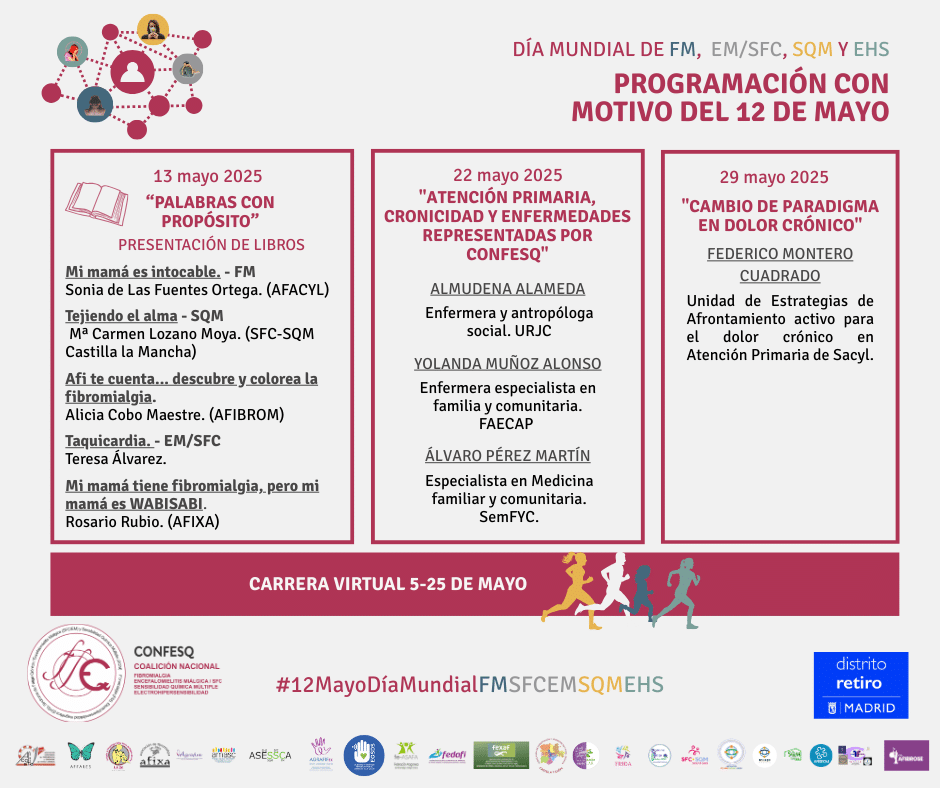Sure! Here’s the translation to American English:
—
On May 12th, in observance of World Day for conditions such as Fibromyalgia, Myalgic Encephalomyelitis, Multiple Chemical Sensitivity, and Electrohypersensitivity, the Spanish National Coalition for Fibromyalgia (CONFESQ) has raised its voice to demand rights and visibility for thousands of patients suffering from these conditions. Through a series of activities, including a virtual race, three webinars, and an intense social media campaign, the organization has highlighted the urgent need to improve training for healthcare professionals in primary care.
María López Matallana, president of CONFESQ, emphasized the importance of establishing mandatory training for doctors on these conditions, as well as creating specific protocols to minimize delays in diagnoses. Additionally, she pointed out the need to adapt healthcare environments to ensure that those suffering from Multiple Chemical Sensitivity and Electrohypersensitivity can receive safe care.
The coalition, which brings together over 60 associations and represents more than 11,000 patients, seeks to raise awareness in both society and public institutions about the importance of an equitable and inclusive approach that recognizes these diseases as disabilities. This, they argue, would facilitate access to fundamental rights such as housing, employment, and education, and allow for a more just acknowledgment of the disability and dependency status of these patients.
During the awareness month, CONFESQ has developed various events to open a dialogue between patients and healthcare professionals, challenging the social and structural barriers faced by those affected by these conditions. Among the most significant past initiatives is the preparation of the report “The Numbers of MCS and EHS from a Human Rights and Disability Perspective,” which details the everyday impact of these conditions on patients’ lives.
It is alarming that 92% of those affected are women, who not only deal with physical health issues but also face prejudices and social expectations that can intensify their suffering. CONFESQ has emphasized the need to change narratives that dismiss female symptoms, highlighting how social exclusion affects the mental health and emotional well-being of these patients.
Since its founding in 2004, CONFESQ has tirelessly worked to advocate for the rights and interests of patients and their families, seeking to engage both at the national level and with relevant institutions to promote actions that improve the quality of life for those suffering from these diseases.
Source: MiMub in Spanish










